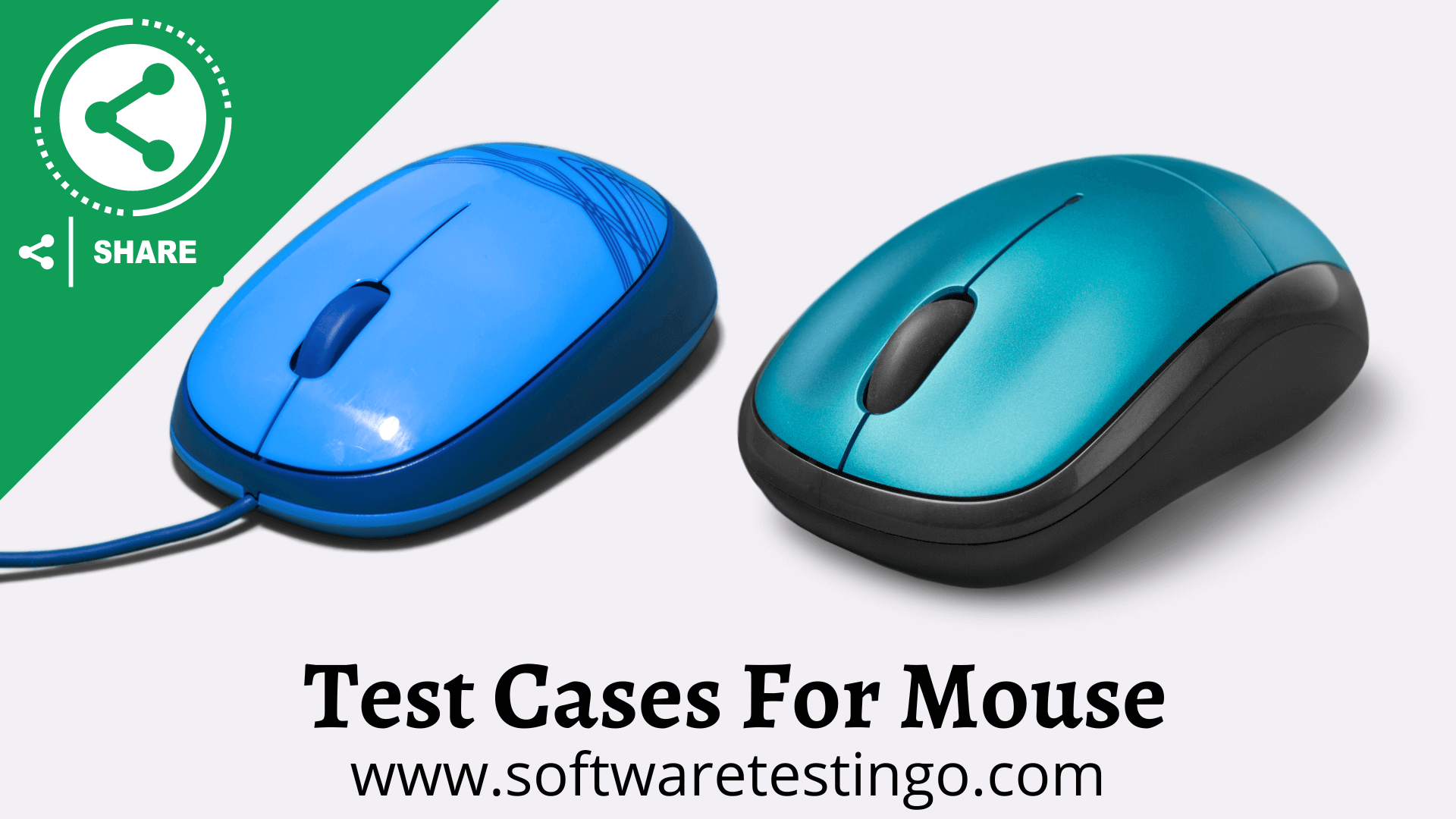Test Cases For Mouse: Writing mouse test cases is complicated unless we narrow down the device specifications. In this post, I have selected generic devices and written their cases. Let’s start with the device selection and then narrow it down to the specific type.
| Post On: | Test Case For Mouse |
| Post Type: | Test Case Template |
| Published On: | www.softwaretestingo.com |
| Applicable For: | Freshers & Experience |
| Don’t Miss | Telegram Group Of Software Testingo |
Let’s keep the discussion for a manufacturing company and another company-specific standard out of this for now, and in the previous post, you can check the test case for mobile.
Mouse Test Case
There are multiple types of Mouse devices available:
- Mechanical mouse
- Optical and laser mouse
- Ergonomic mouse
- Laptop or Gaming mouse
- Tactile mouse
Test Cases For Mouse
The types of main test cases for the mouse tests are given below.
- Specification test
- Integration test
- Functional test
- Software test

Test Cases For Mouse – Specification Tests
- Check the company logo is as per the requirement and at a specific location.
- Check if the mouse has a scroller and the light on the bottom.
- Check the identification and specification details. The sticker will be present on the backside.
- Check the width, height, and weight as per the requirement.
- Check the optical region works as per the requirement.
- Check if the mouse is a PS/2, USB or serial port mouse, or cordless mouse.
- Check the left and right buttons are as per the requirement.
Mouse Test – Interaction Tests
- Check whether it is connected to your PC or not.
- Check if the USB driver is detected automatically by the operating system (Windows, Mac, and Linux).
- Check if the device does not require any other specific driver than the standard USB driver.
- Check if the device has no hardware conflict during the system boot.
- Check if the device has no hardware conflict after the startup during the desktop session.
- Check if the pointer is visible after plugging in between the desktop sessions.
- Check if the device is pointing to the right region while pointing on the screen.
Mouse Test Cases – Software Tests
- Check on right-click, and the user should get the context window.
- Check by Clicking left click the application is opening, or the region is selected.
- Users can drag and drop objects like files, folders, and media using the left click.
- Check on Clicking: Double-click the file, folder, and media files to open or operate as intended.
- Check if the scroll works when you have opened multipage content.
- Check the scroll bar is working as expected by going up, down, and in the right direction.
- Check using the control panel; the user can change the right and left-click functionality.
Functional Test Cases For Mouse
- When a user moves the pointer on the screen, it should turn out as a hand symbol when it is moved on the links.
- Check if the pointer turns out to be a vertical bar in the textbox.
- Check if the mouse pointer is in the right place where it is intended to point.
Test Cases For Wireless Mouse
- Check the mouse over whether a link to the mouse cursor icon gets changed or not.
- Check whether by hovering over whether a menu or submenu is open or not.
- Check if the tooltip message is displaying on hover. (If a tooltip message is present )
- The mouse pointer should go to normal view when the user moves the cursor from any object.
Conclusion
These are some of the test cases that I can think of. Many other specific test cases can be made based on the type and the device’s company. Let me know if you have any other test cases in mind. I’d be happy to add these test cases to the above list.

hi
hello
hi